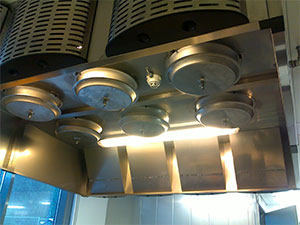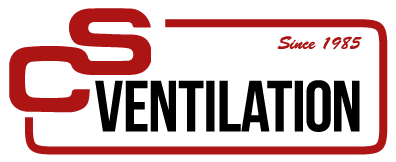After getting a new hood installed, restaurant owners are often excited to be operating in a cleaner space. The new hood will prevent any fumes coming off of cooking equipment from getting to areas of the restaurant that they don’t belong. The fumes will be sucked up into the ventilation system, where they will be brought outside and replaced with fresh air. One thing, however, that gets overlooked in the installation process is the need for regularly scheduled cleanings to prevent dangerous grease build-up and keep your restaurant feeling fresh.

Cities and towns will regularly adopt codes or laws that have been created to regulate how often a restaurant hood needs to be cleaned. The Boston Fire Department uses the NFPA 96 regulations to standardize the process of testing restaurant hoods. The International Kitchen Exhaust Cleaning Association (IKECA) has proven to be of the high standards required by the NFPA 96.
Following the NFPA 96, the frequency of hood cleanings for your restaurant will be determined based on the type of cooking that is done.
Solid Fuel (wood, charcoal): Monthly
High Volume, 24 hour operations, charbroiling, wok cooking: Quarterly
Moderate volume cooking: Semi-Annually
Low volume cooking (churches, day camps, seasonal operations): Annually
If you follow the guidelines for frequency of hood cleaning listed above you will be able to ensure your restaurant is a safe one. Putting off a cleaning until newt month may seem like a good way to save a little money, but you are putting your entire operation at risk. Your restaurant deserves a properly cleaned hood. Call CS Ventilation to get started today.
If your city or town follows guidelines that are different from the NFPA 96 we can help too. Just set up a meeting with one of our technicians and they will make sure to go over what is expected of you and what CS Ventilation can do to help you keep up with the fire code.
 CS Ventilation | Commercial Kitchen Hood Cleaning
CS Ventilation | Commercial Kitchen Hood Cleaning